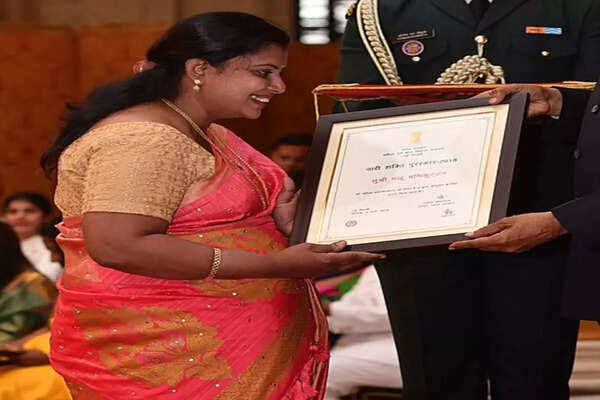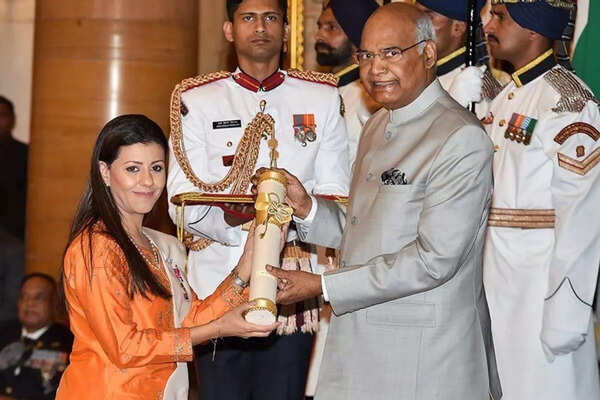Girls in Saudi Arabia are redefining their roles, advancing in healthcare, training, and entrepreneurship below Imaginative and prescient 2030 reforms/Consultant Picture
TL;DR:
2.6 million Indians contribute considerably to Saudi Arabia’s economic system. Feminine Workforce participation up from ~23% to ~35–36%, with rising management and SME possession.
Persisting hurdles akin to Saudization, authorized friction, and cultural biases nonetheless restrict full expat feminine participation.
Increasing Indian Presence within the Kingdom
Indian expat inhabitants: As per the Indian Ministry of Exterior Affairs (MEA 2024), 2.59 million Indians reside in Saudi Arabia, making them the biggest expatriate group.
Expat composition: The Normal Authority for Statistics Saudi Arabia (GASTAT) additionally confirms that expats account for 44.4% of the Kingdom’s whole inhabitants of round 38 million in 2024..
Labour drive actuality: Migrants account for 56.5% of whole employment, and remarkably, 89% of private-sector jobs are crammed by non-Saudis.
India-born workers dominate key sectors: building, healthcare, retail, hospitality, and now more and more expertise and training.
Imaginative and prescient 2030 & Girls’s Workforce Trailblazing
Feminine labour drive leap: As per GASTAT, Saudi girls’s workforce participation surged from 23.2% in 2016 to ~34–36% by 2022–2024, exceeding Imaginative and prescient 2030’s 30% goal.
Management & entrepreneurship: Over 78,000 girls maintain senior administration roles (Q3 2024), 551,318 companies registered in 2023 by girls, and practically 450,000 freelance permits issued.
Anti-discrimination and autonomy: Girls gained equal pay legal guidelines, the power to drive (2017), safety in opposition to harassment, and the proper to journey, entry credit score, and personal companies with out male guardianship.
Reforming the System: Instruments Empowering Expats
Saudi has launched sturdy labour applications tailor-made for expats, benefitting girls considerably:
Musaned (2014): A digital, standardised contract system applied through licensed businesses ensures transparency, readability in wages, and a channel to file grievances.
Qiwa & Labour Reform Initiative (2021): These platforms enhance employer-employee relations, implement contracts, facilitate mobility, and make medical health insurance and heat-safety necessary.
Bilateral labour agreements: Bilateral agreements akin to India-Saudi collaboration allows information-sharing and investigation of labor practices, decreasing mismatches and exploitation .
Human Tales within the Highlight
Manju Manikuttan (Kerala → Al Khobar)

Manju Manikuttan receiving the Nari Shakti Puruskar/Picture: Wikipedia
Profile: Moved to Saudi in 2011 as a beautician; now a celebrated social employee by way of Navayugam.
Impression: Took over the ladies’s deportation centre after mentor’s dying. Rescued a whole lot of Indian girls employees misled into home jobs in precarious conditions.
Recognition: In 2019, she grew to become the one non-resident girl awarded the Nari Shakti Puraskar by President Kovind at Rashtrapati Bhavan.
Notable rescue: Helped “Chandrika,” an accountant duped into home work, till her protected return to India.
Legacy: Formally authorised by Indian embassy and supported by Saudi authorities at Dammam’s deportation centre which illustrates her deep-rooted credibility.
Nouf al‑Marwaai (Saudi → Indian-recognised visionary)

Nouf Al Marwaai receiving the Padma Shri in 2018/Picture: X
Profile: Saudi nationwide who based the Arab Yoga Basis in 2010. Pioneered mainstream acceptance of yoga in KSA .
Impression: Licensed 700+ instructors and educated over 10,000 practitioners by 2019 .
Honour: Turned the primary Saudi girl to obtain India’s Padma Shri in 2018 for cross-cultural wellness contributions.
Significance: Her journey highlights the rising acceptance of female-led initiatives and cultural bridges in Saudi Arabia.
Rising Alternatives for Girls Expats
Indian girls are actually getting into numerous, significant roles:
Past home labour: Growth into hospitality, healthcare, finance, training, IT, and STEM fields.
Progress sectors in 2025: Renewable vitality, digital transformation, healthcare enlargement, tourism (NEOM, giga-projects), FinTech, building, and training are hotspots.
Safety & assist: Girls-only transit, childcare, necessary medical health insurance, summer-hour guidelines, and anti-harassment legal guidelines guarantee a safer setting.
Challenges: Navigating Gaps & Headwinds
Regardless of progress, obstacles persist:
Saudization: Choice for Saudi nationals in personal sector hiring limits expat entry, impacting expert expat girls in IT and company roles.
Gender & nationality bias: Reddit voices echo that expat girls face harder competitors for company roles as Saudis are prioritised .
Authorized frameworks vs execution: World Financial institution highlights that although authorized reforms are sturdy (rating 50/100), implementation mechanisms like childcare, parental depart, and monetary inclusion want strengthening.
Continued discrimination & unequal networks: Expats nonetheless wrestle with bias, decrease salaries, or fewer promotion possibilities in comparison with locals .
What Lies Forward:
Regulated security nets: Platforms like Musaned and Qiwa, and embassy-backed advocates like Manju provide concrete safety and recourse.
Numerous profession paths: Girls can construct careers in new sectors; STEM gigs, digital well being, training roles, hospitality, entrepreneurship, and wellness (e.g., yoga studios).
Inspiration & objective: Tales of ladies like Manju exhibits expat girls can lead, innovate, and achieve recognition.
Alignment with mega-programs: Saudi’s financial diversification means demand for expert feminine expertise is rising particularly in giga-projects and tech ventures.
Supportive ecosystem: Infrastructure (women-only transport, childcare), authorized protections, and bilateral agreements are in place, although bridging gaps stays vital.























